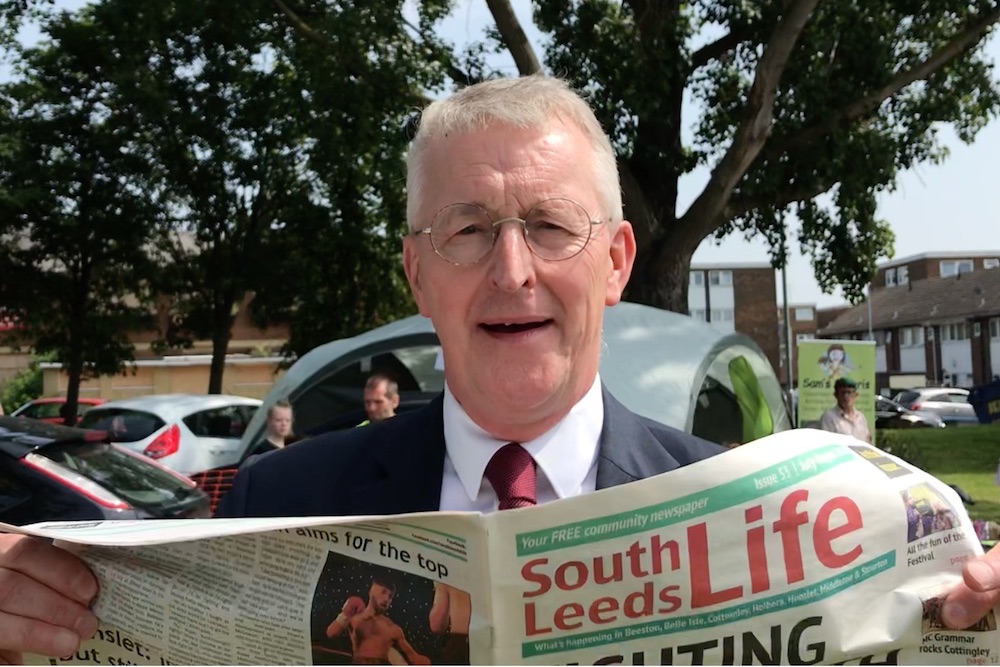
70 years of service is a remarkable achievement by any measure. So, as we celebrate Her Majesty the Queen’s Platinum Jubilee, I am sure we would all like to express our heartfelt thanks for her devotion to our country, and for the way in which she has carried out her duties. She has been an encouragement to many and a constant in our lives during turbulent times. Long may she reign.
The cost of living crisis is the single most important issue facing families in South Leeds.
The facts are stark. Inflation is at a 40 year high. The cost of energy and food keeps going up. And lots of people worry about being able to afford the higher bills they are already getting, let alone keeping themselves warm this coming winter. On a recent visit to a local charity, I heard how demand for debt advice is shooting up.
The energy companies have been warning of a catastrophe to come, and the Chancellor has now finally adopted the policy that many of us have been calling for – namely a windfall tax on the oil and gas companies (even though he decided to call it instead a ‘temporary targeted energy profits levy’!).
Anyway, the extra help is of course welcome but there will still be those struggling, and I worry in particular about people disconnecting themselves because they are on a pre-payment meter. We know that people on pre-payment meters pay more for their electricity and gas than those who pay by direct debit. This is unacceptable price discrimination against those who are mainly on the lowest incomes.
I raised this with the Prime Minister recently and asked him what he will do to ensure that all of our constituents have access to light and to warmth. It used to be legal to cut off people’s water supply if they could not afford to pay their bills, but there was such an outcry that the law was changed to stop this happening.
And it’s not just energy prices. The cost of food is shooting up too, and while there are global pressures, new research says that the post-Brexit barriers we have now put on trade with the EU have had an impact on food prices in the UK. Prices have risen most sharply for foods where we are more reliant on imports from the EU like fresh pork, tomatoes and jams.
There are also other consequences of these new trade arrangements following our departure from the EU. I recently visited a very large fruit farm in Kent which last year wasn’t able to pick 8% of the crop it had planted because it couldn’t get enough visas for fruit pickers.
As a result, they have planted fewer crops this year and are expanding their business overseas to import more fruit from there to help fill our supermarket shelves. This simply doesn’t make sense. Surely, we should be aiming to produce as much food as possible here in the UK?
The impact of all of this is clearly seen by the Trussell Trust, which runs a huge network of food banks across the UK, including in Hunslet, Beeston and Belle Isle. This is the sobering picture they report.
More than 2.1 million emergency food parcels were given to people facing financial hardship across the UK between 1 April 2021 and 31 March 2022. More than 830,000 emergency food parcels were provided to children. There has been a 14% increase on pre-pandemic levels of demand, as more and more people are unable to afford the absolute essentials, and needs have grown in the past six months, after the £20 increase in Universal Credit was taken away and the cost of living crisis began.
Food bank managers are sounding the alarm from the front-line. One said: “The people who come in are telling me they’re scared. People are beside themselves about what the next six months will bring.”
Perhaps most shocking of all, 5,156 people were admitted to hospital with malnutrition between September last year and February this year in England alone – more than in the whole of 2010. And the number of people being admitted with scurvy – the disease we used to learn about in our history lessons – has doubled in the past 10 years. As the sixth wealthiest country in the world, surely, we can do better than this?
And finally, to come full circle, a thank you to three other public servants.
5 May saw the end of Liz Nash’s long career on Leeds City Council. For nigh on 50 years, she has given extraordinary service to our community. I’ve had the privilege of working alongside Liz for about half of that time and I can attest to the fact that she has been a doughty fighter on behalf of her constituents.
The same is true of Kim Groves and Angela Gabriel, who have both stepped down. They have been great representatives of their communities, and all the people they have helped over the years will remember them with gratitude, as the rest of us reflect on the changes for the better they helped to bring about.
I am sure we would want to send them our heartfelt thanks for everything that they have done and wish them and their families well for the future.


